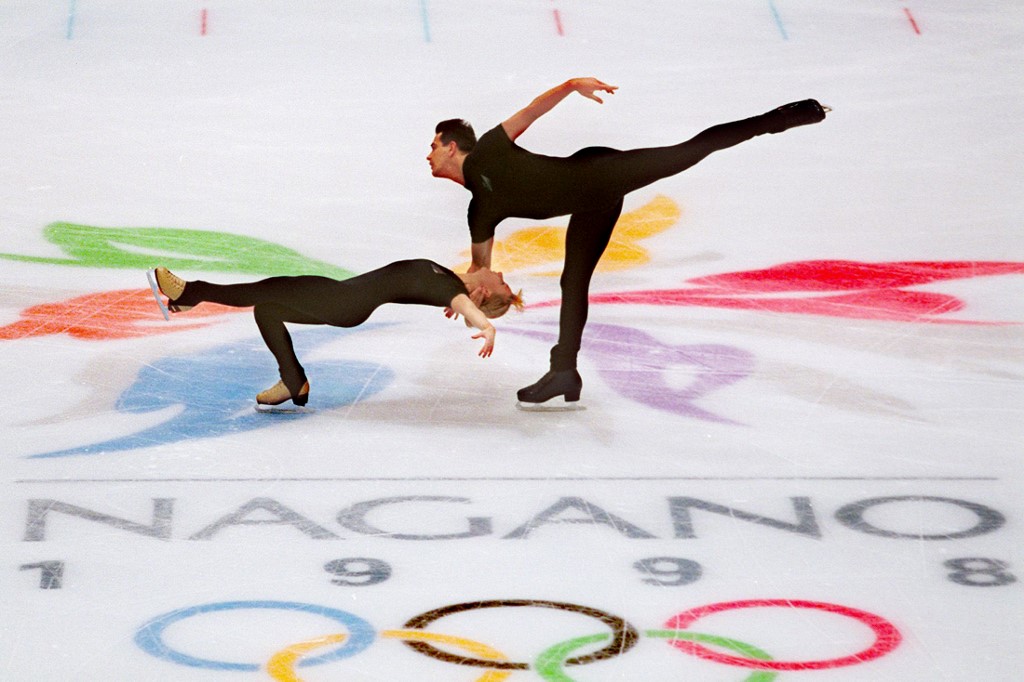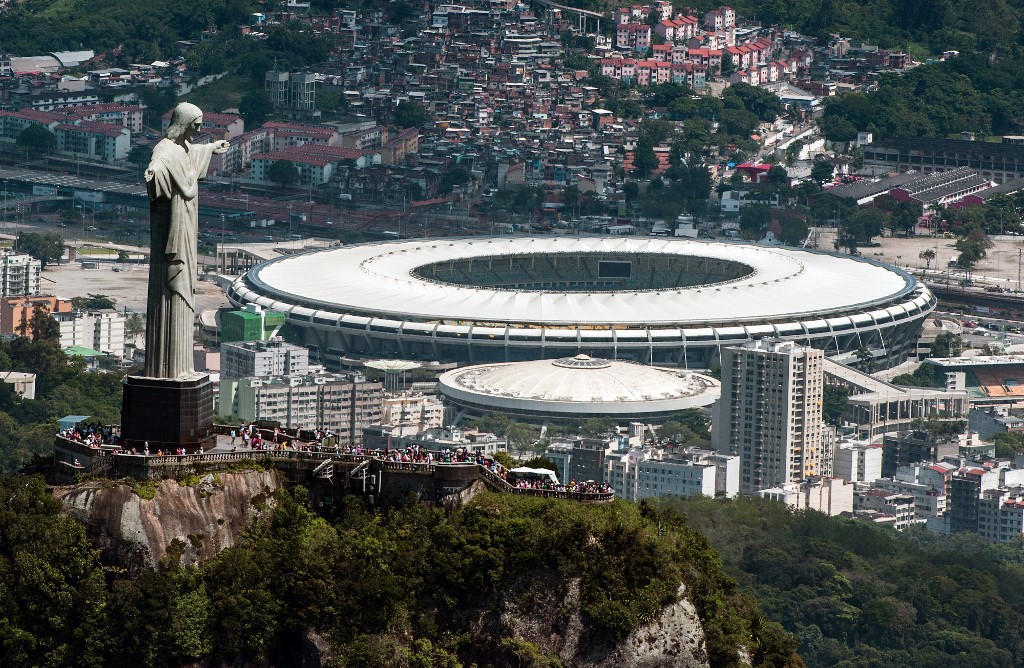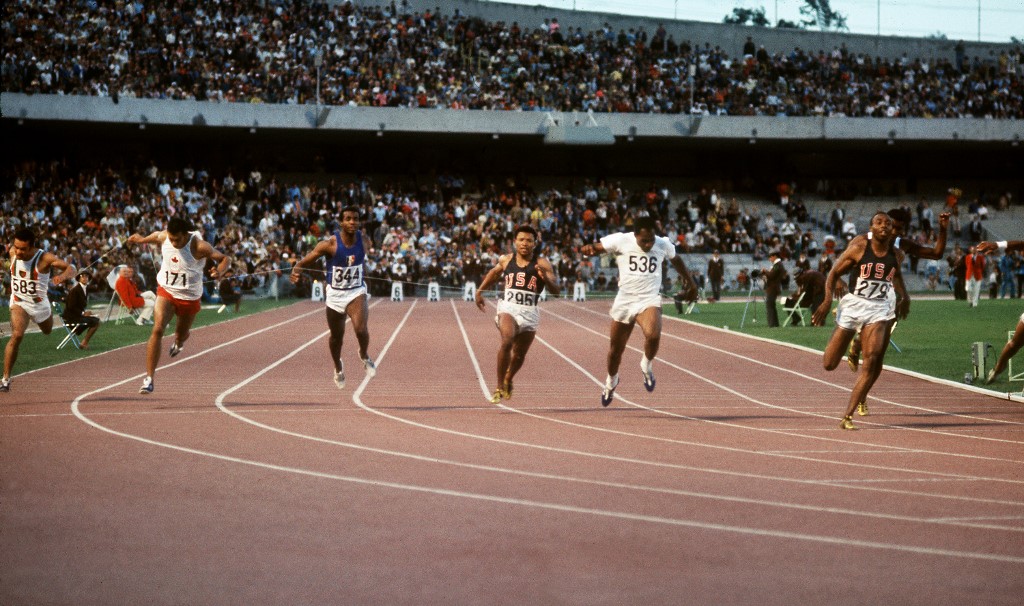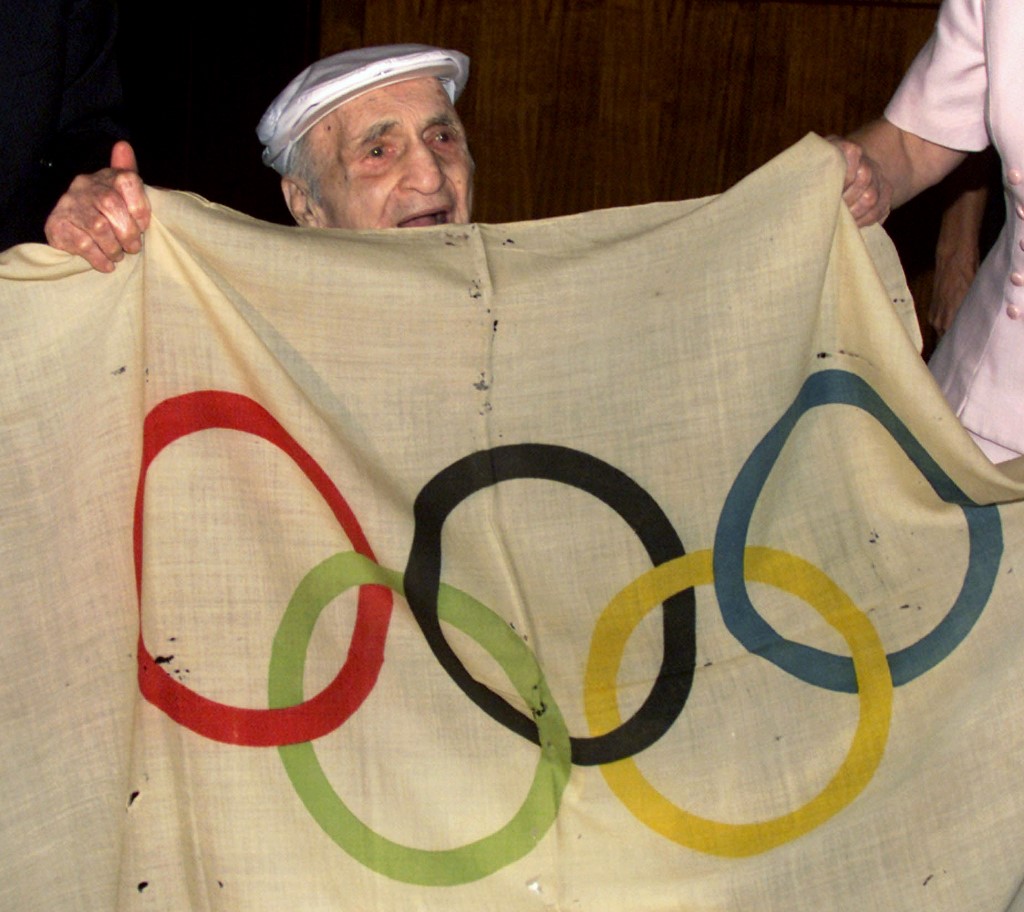When the Games went viral: historic Olympic health scares
Tokyo 2020 organizers will this autumn begin the task of devising safety protocols to allow the Olympics to take place if the coronavirus pandemic is still raging.
But Tokyo 2020, which had been due to start on Friday until it was postponed for a year, will not be the first Olympic Games to face a health crisis, although the scale of the challenge posed by COVID-19 is unprecedented.
AFP looks at previous Olympics that went ahead in the face of viral outbreaks.
Nagano 1998: Flu

FILES – Picture taken 05 February 1998, shows German pair skaters Ingo Steuer (R) and Mandy Wotzel practicing at the White Ring arena in Nagano, two days before the opening of the 18th Winter Olympics. AFP PHOTO (Photo by AFP)
There was an outbreak of influenza the last time Japan hosted the Games — the Winter Olympics in the central city of Nagano in 1998.
Nearly 1,500 schoolchildren in the Nagano region came down with the flu and some 200 people connected with the Games were taken ill — although officials stressed other illnesses were also to blame.
The virus prevented Norwegian 1,500 meter gold medal-winning speed skater Adne Sondral from going for a double in the 1,000 meters.
German figure skating medal hopeful Tanja Szewczenko pulled out over health fears and the International Olympic Committee (IOC) also got involved, warning competitors against the flu and advising them to take on plenty of fluids.
That outbreak of flu was unrelated to the killer bird flu hitting southern China at the time.
Rio 2016: Zika

FILE PHOTO — Aerial view of the Christ the Redeemer statue atop Corcovado Hill and the Mario Filho (Maracana) stadium in Rio de Janeiro, Brazil, on December 3, 2013. AFP PHOTO / YASUYOSHI CHIBA
Ahead of the 2016 Rio Olympics, the talk was dominated by Zika, a mosquito-borne virus that can cause pregnant women to give birth to babies with microcephaly — a deformation that results in abnormally small brains and heads.
The Zika outbreak began in 2015 and infected around 1.5 million people, according to the World Health Organisation (WHO), mainly in Brazil.
There was concern that international visitors to the Games could spread the virus globally, even though the WHO assessed the risk as “minimal.”
Some leading tennis players and golfers — including golf’s current world number one Rory McIlroy — decided not to compete due to fears over the virus.
The stories proved more dramatic than the facts, with no new cases reported during the Games.
Mexico 1968: Flu

FILE PHOTO — American champion Jim Hines (R) crosses victoriously the finish line of the Olympics men’s 100m final, clocking a time of 9.9, 14 October 1968 in Mexico City. (Photo by – / EPU / AFP)
The 1968 Olympics in Mexico took place during one of the worst pandemics of the 20th century — the Hong Kong Flu.
It spread throughout Asia after emerging in the then British colony neighboring southern China, and had reached the Americas by late 1968, eventually killing around one million people but had little impact on the Games.
Antwerp 1920: Flu

Hal Prieste, 103, from the USA holds the original Olympic flag that he stole from the pole during the 1920 Olympics in Antwerp, where he won a bronze medal in the high diving platform before he handing it back to IOC President Juan Antonio Samaranch during the opening of the 111th session of the IOC, 11 September 2000 in Sydney. (Photo by SVEN NACKSTRAND / AFP)
Held in the aftermath of the Spanish Flu, considered to be the most deadly in history and claiming up to 50 million lives, the Antwerp Games were seen as a symbol of humanity’s effort to rebuild after the devastation of World War I.
Although the Spanish Flu killed five times more people than died in 1914-18 war, the impact of the virus was overshadowed by the global conflict.
A century on, Tokyo 2020 organizers have been at pains to stress that if the Games go ahead they will again stand as a beacon of triumph against adversity.